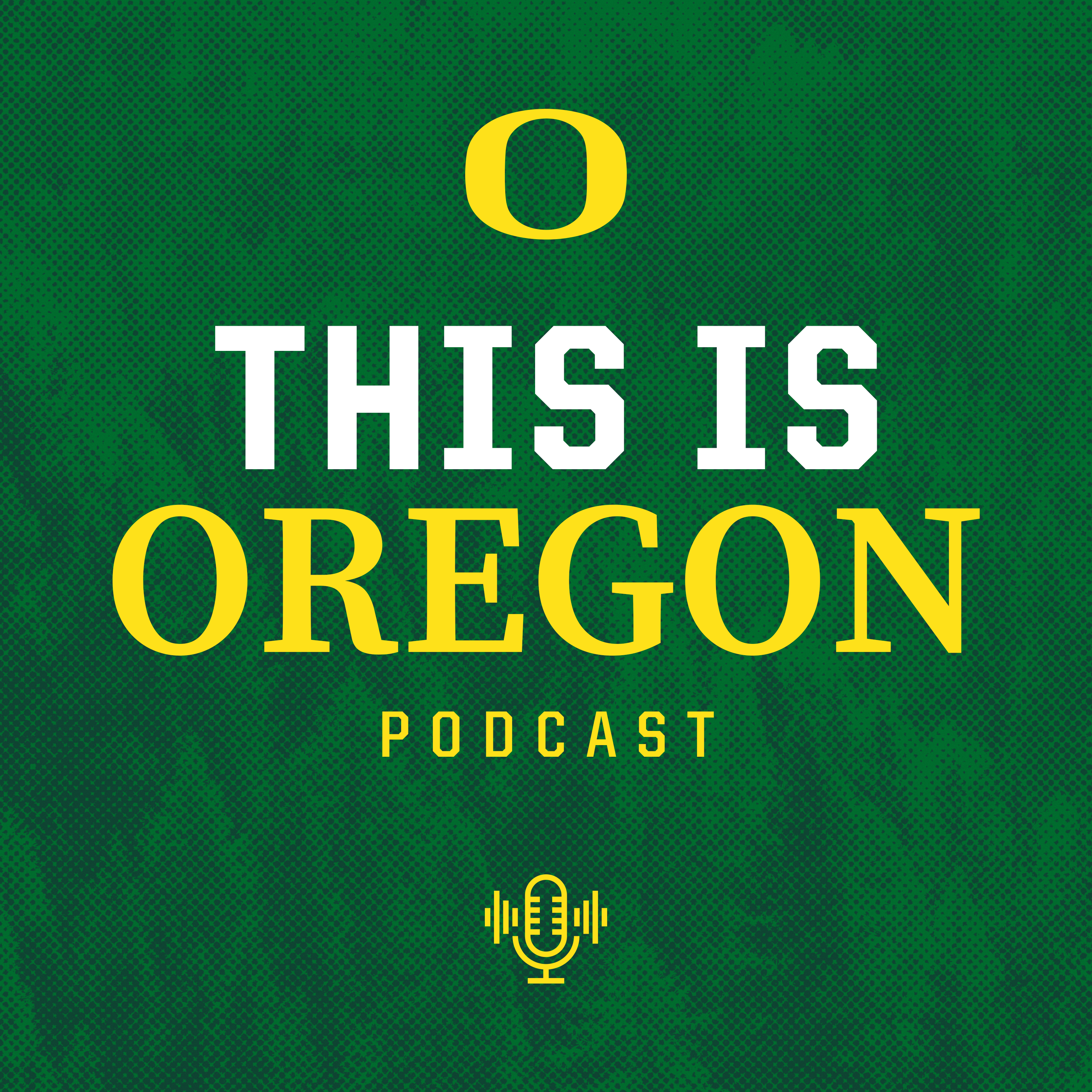This is Oregon

This is Oregon
Podcast Description
On the This is Oregon podcast, we take you inside the research and discoveries happening at the University of Oregon, a leading research university and member of the Association of American Universities. We talk with UO faculty and experts from a variety of fields who are working to address today's most pressing issues in Oregon and beyond—helping us all live healthier, better lives.
Podcast Insights
Content Themes
The podcast covers a range of essential topics such as youth health through sports, digital media parenting, and the intersection of chemistry and hobbies like coffee brewing. For example, episodes explore the benefits of sports for youth with actionable insights on enhancing the fan experience at Oregon Athletic events.

On the This is Oregon podcast, we take you inside the research and discoveries happening at the University of Oregon, a leading research university and member of the Association of American Universities. We talk with UO faculty and experts from a variety of fields who are working to address today’s most pressing issues in Oregon and beyond—helping us all live healthier, better lives.
On this episode we’re joined by Melaney Grenz, project manager for the Center on Brain Injury Research and Training, or CBIRT, at the University of Oregon. In this episode, she discusses how her work with CBIRT helps support people with Traumatic Brain Injuries, or TBIs, what TBIs look like in everyday life, and what their impact can have on school, work, and daily function. Grenz also shares common misconceptions and practical advice for friends and families supporting someone with TBI.
Topics
- What does a project manager at CBIRT do? [00:55]
- CBIRT’s role in brain injury recovery [1:29]
- TBI basics, the signs, and who’s most at risk [2:31]
- Common misconceptions, biggest challenges, accommodations [6:21]
- Concussion Laws and Cultural Change [14:55]
- What’s next for CBIRT [20:06]
- Friends and family advice [22:20]
Guest
- Melaney Grenz, project manager for the Center on Brain Injury Research and Training (CBIRT) through the University of Oregon
Resources
- Lived Experiences with Traumatic Brain Injuries, listen to Melaney Grenz’s podcast to hear real stories about TBIs and how they affect everyday life.
- CBIRT, learn more about the Center for Brain Injury Research and Training’s work supporting and advocating for individuals with brain injuries, families, educators, and clinicians through research and training.
- CBIRT on Facebook, X, and LinkedIn, follow CBIRT on social media for resources, research updates, and tools that support people living with brain injuries.
- Oregon Return to School Model, find out more about Oregon’s model for helping students successfully return to school after a concussion or brain injury.
Quotes
- “You know you’ve had a concussion, okay? You feel way different. It’s scary. It’s surreal. And each brain injury is different; they’re like a snowflake. If you’ve seen one snowflake, you’ve seen one snowflake.” [5:14]
- “If you think about a brain injury, it’s not like another disability. It was unexpected. There’s little the person could have done to prevent it, usually; they were unprepared.” [6:37]
- “The risk of brain injury is 4 to 6 times greater after one [concussion] and eight times greater after two.” [7:53]
- “Recovery’s so variable depending on the injury— we can’t say, “You know, in this much time you’re going to be okay.” No one can do that, right? We wish we could, but we do know that social support of the family is the best predictor of function and quality of life after brain injury, and I’ve said it so often that a brain injury adversely affects the entire family unit.” [9:00]
- “All 50 states have a Return-to-Play law, but only 14 states have a Return-to-School law, with Oregon being one of them. Texas recently passed theirs. And so, we just continue to help other states. It’s like, “You must have this in place.” Our students are counting on us.” [16:38]
Listen to more episodes and explore the Oregon Podcast Network at news.uoregon.edu/podcasts

Disclaimer
This podcast’s information is provided for general reference and was obtained from publicly accessible sources. The Podcast Collaborative neither produces nor verifies the content, accuracy, or suitability of this podcast. Views and opinions belong solely to the podcast creators and guests.
For a complete disclaimer, please see our Full Disclaimer on the archive page. The Podcast Collaborative bears no responsibility for the podcast’s themes, language, or overall content. Listener discretion is advised. Read our Terms of Use and Privacy Policy for more details.